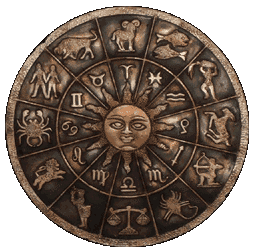What is astrology? the opinion of an astronomer

"So you participate in the mass cultural delusion that
the Sun's apparent position relative to arbitrarly
defined constellations at the time of your birth
somehow affects your personality...?"
Sheldon
Cooper

If you ask any astronomer whether there is any truth in
astrology, the answer will be succinct:
There is no scientific evidence favouring any
astrological phenomena; physically, there is no effect
that a distant star could exert on any kind of living
being on the Earth.
Astronomy is the scientific study of objects and matter
outside the earth's atmosphere and of their physical
and chemical properties, is accepted as a science and
is a widely studied academic discipline.
Astrology deals with the apparent positions of the
planets and constellations at the precise moment of
someone's birth, and claims that these relates
systematically to their character, personality traits,
relationships with others, profession and auspicious
times of their life. Astrology is not widely regarded
as science and is typically defined as a form of
divination. A good description of the historical
differences and similarities of these two subjects can
be found here.
Why are we, people living in the XXI century, still so intrigued by astrology?
Sceptics say one of the main reasons it appeals is because
we don't like the unpredictable. By promising an insight
into what the coming weeks and months could be, astrology
gives us the feeling of control over our lives and the
unpredictable. Another reason is flattery: personality
profiles tend to be peppered with characteristics such as
sensitive, emotional, active, practical, pleasant and so
on; traits everyone likes to associate with themselves. In
order to do that, popular astrologers need a good grasp of
psychology, this is where the so-called Forer effect comes into play: some
statements seem to apply specifically to yourself, when
in fact they have a universal validity. People see
what they want to see, hear what they want to hear.
Astrologers know that and their columns and predictions
are often full of these kinds of statements.
On the other hand, according to several studies it has been
shown that people can be succesfully categorized. An
argument in favour of astrology is that people of same sign
tend to have similar personality traits and that some
specific signs tend to meet and get on better with other
certain signs. However, this could have a psychological and
scientific explanation. At a given time of the year, the
relative position of the Earth, Sun and Moon at the time of
birth/conception may have an effect on the personality,
just because of the feelings, atmosphere and circumstances
of the mother on that specific season and period of the
year. Studies have argued that the moon's gravity may
affect women's menstruation cycle, so obviously emotions
are also affected. In many old cultures, the name chosen
for the new-born is based on the time and date of the birth
and corresponds to natural phenomena of seasonal
characteristics; e.g. for the Native American Indians,
children born in spring are often called "falcons" whose
personalities are like a seed coming up in spring, with
energy bursting out, full of vitality and adventurous. But
obviously, many other events will influence an individual:
the family, school, society, genes, childhood, etc.
contribute to make up the personality.
Conclusion
None of this matters if we see astrology as an elaborate
zodiac sign column, good only for entertainment or for
consoling frustrated romantics. But if we see astrology as
a source of knowledge, we are making a claim that, like all
claims to knowledge, will be generally contested by
philosophers, scientists, and educated people.
Unfortunately, it seems quite unlikely that astrologers
will ever avoid artifacts or take up critical thinking.
It's seems extraordinary that thousand of years after the
zodiac was invented by ancient civilisations, some people
still think that some sort of influence exists, based on
"energetic" arguments. But not only that, it's surprising
that for some groups astrology is more relevant than
astronomy in scientific bases.
I finish with a quote by Alice A. Bailey:
"These are astronomical facts. The interpretation of the
symbolism attached from ancient days to these
constellations is as old as religion itself. Whence came
the signs, and how the meanings and symbols associated with
them came into being, is lost in the night of time.
They have existed in men's minds and thoughts and writings
for thousands of years, and are our joint heritage
today."
Good sources on the Astrology vs. Astronomy are:
- Astrology & Science, the
scientific exploration of astrology
- The Truth of Astrology, essay
competition entries which illustrate faulty reasoning
- Best Astronomy Books for Beginners -
Stargazing with Binoculars or a Small Telescope